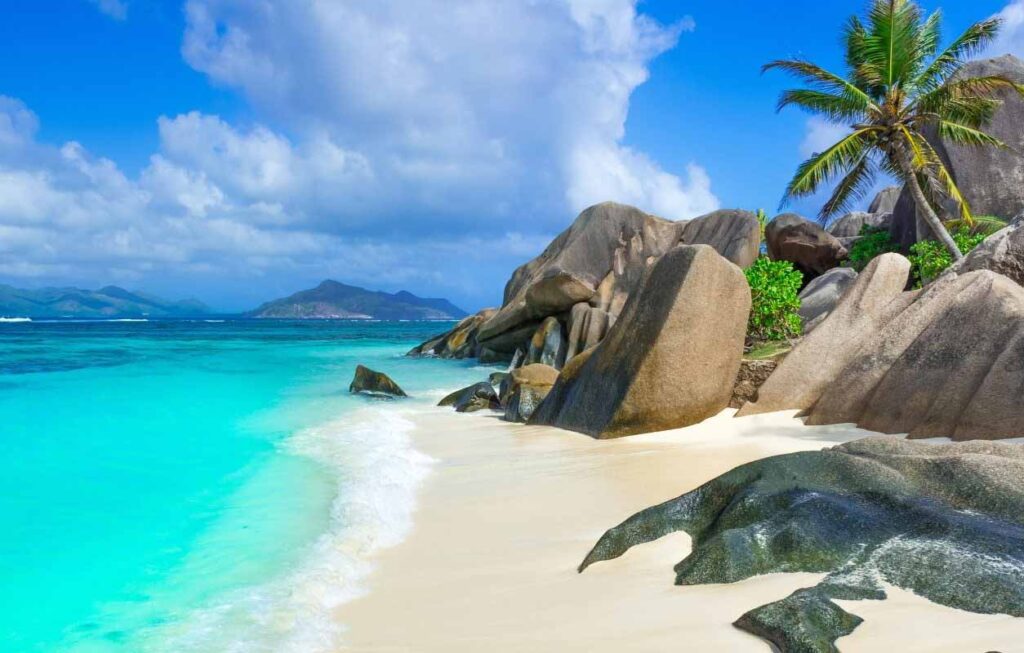When you hear “tropical destination”, your mind probably leaps straight to winter vacations. Cold weather, dark days, too many layers, and the dream of sand, sun, and a piña colada somewhere warm and distant. But there’s a secret that expert travelers know well: tropical destinations in the summer? Still a good idea. Sometimes an even better one.
Naturally, most visitors schedule their beach holidays in Italy, Spain, or the south of France when summer comes. However, as Europe’s beaches grow congested and prices rise, tropical locales quietly offer a different kind of summer escape which is less hectic, more affordable, and often just as sunny as you would wish them to be.So let’s see why off-season travel to tropical destinations during the summer is more logical than you might assume, and which locales are actually perfect during the summer months.
1. Comparing Europe vs. The Tropics
July and August beaches in Europe are beautiful, but, honestly, never relaxing. Towel-to-towel setups, waits at restaurants, and infinite lines at attractions have vacation feeling like a job.
On the other hand, most of the tropical hotspots reach their low season during the northern hemisphere’s summer, which of course makes them less busy. Prime destinations like the Seychelles, Mauritius, Bali, and the Caribbean are less busy, cheaper, and in many cases, still enjoying lots of sunshine — and you won’t have to fight for beach space, like in high-season Europe.
2. A very fair pricing
Off-season tropical travel often means lower prices without lower quality. Flights and accommodation costs drop significantly, and packages that are usually reserved for winter get marked down or opened up for longer stays. In beach destinations like Zanzibar, Sri Lanka, or Cape Verde, what would otherwise be a luxury stay in December now falls within a great value summer budget.
3. The local weather
“Rainy season” is a phrase that gets thrown around a lot when talking about tropical travel, but it’s often misunderstood. The rainy season in most locations is not four days of rain, it’s a heavy afternoon shower with hours of sunshine. Southeast Asia is an excellent example. In destinations such as Bali, Vietnam, or Thailand, the summer rains pass quickly, and many visitors appreciate the slightly lower temperatures and lush, green scenery as a welcome bonus.
For some destinations, summer is actually a high season. Atlantic islands, for example, enjoy mild, dry summers with constant ocean winds. If that appeals, discover more about when to go to Cape Verde, which may as well become a great destination to think of.
4. Changing your perspective
During peak season, the majority of tropical hotspots turn into very efficient tourist machines. During the off-season, though, they return to their own pace with a very genuine, local touch to the environment you’ll discover there. This becomes a great opportunity to explore the authentic cultures welcoming you to get more familiar with their ways of life, which are in many ways different from your daily routine. This will undoubtedly give you space to relax, reflect, discover, all by learning something new.
5. Life in a natural oasis
Summer is also a secret time to see tropical nature at its best. Greenery is lush, wildlife is active, and there are fewer tourists so you can get back to nature with ease. Costa Rica has the green season when waterfalls, rainforest treks, and lush wildlife come out — not to forget cooler temperatures in the highlands. Summer in French Polynesia means flowering flora and empty lagoons where you can snorkel without being disturbed.
Summer in the tropics is full of potential.
6. Wellness without any labels
If you don’t wish to “do” a great deal of things on vacation, tropical vacations are made for that too. Here it’s just built into the surroundings.
Wake up to the sound of birds or waves. Eat fruit that came off the tree that morning. Walk barefoot, swim in warm water, nap without guilt. This is the kind of wellness that’s not marketed, it just happens naturally when you’re somewhere quiet, green, and far from the usual rush. If you will go out of season, you’ll often have them to yourself.
7. Traveling sustainably
Tropical places struggle in high seasons – not just from the crowds, but from the strain on their ecosystems and communities. By traveling in the off-season, you’re spreading your impact more evenly throughout the year.
It also makes you more invited. In off months, the tourism sector still needs supporting – local eateries, guides, and family-run businesses all benefit more when travel is spread out.
By traveling during a time when others don’t, you help keep those places viable, culturally alive, and economically healthy in the long term.
It’s easy to fall into the same rhythm as everyone else when planning a summer holiday. But if you’re willing to go against the grain, tropical destinations offer a surprisingly smart alternative.
So this summer, do not write off the tropics. With a dash of open-mindedness and a taste for something new, you might just find your ultimate beach getaway doesn’t follow the crowds, but escapes them.






